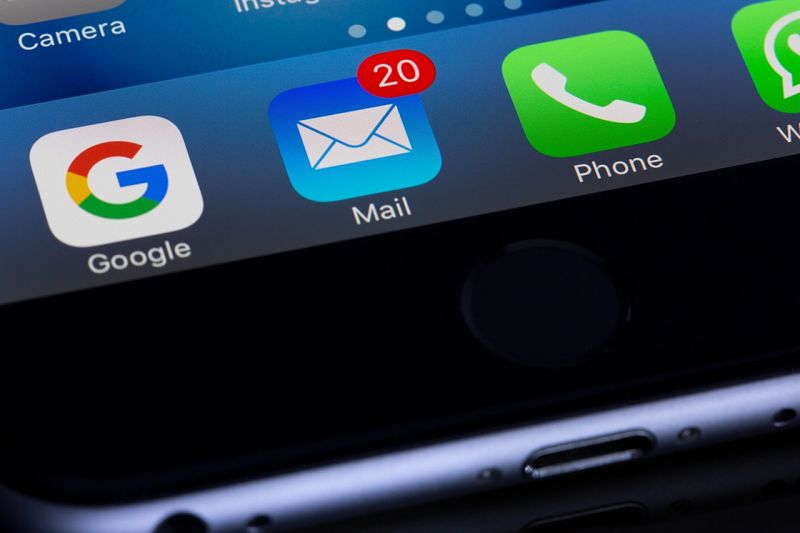How NOT to Build Business Relationships with Americans
Cultures build relationships in different ways.
Understanding these cultural differences can be the difference between success and failure.
Failing to appreciate how someone builds business relationships in the Middle East might, for example, can result in a lack of progress when working in the region.
On the flip side, when you take the time to learn a bit about the culture, it pays off.
In this blog, we’re going to look at how to build business relationships with Americans – however, rather than explain what you should do, we’re going to look at an example of what you should NOT do instead!
At the END OF THE PAGE you'll find a link to a FREE sample of our eLEARNING COURSE on U.S. BUSINESS CULTURE.
Scenario: Korean & U.S. Cultural Differences
Let’s take a look at an example of cultural differences gone wrong.
This is a scenario involving Korea and American culture.
Ji-Hoon is Korean. He services a client base in the USA. He thought he was doing a great job of relationship building, but unfortunately, his manager received the following complaint from one of Ji-Hoon’s American clients:
‘Ji-Hoon sends me really long emails, full of non-work information and I always feel obligated to get back to him about everything, even though none of the points are relevant to the tasks. I just don’t have the time.
It’s especially annoying when there’s an issue. I wrote to him about some late delivery times and rather than deal with my issues, he ignored them and came back with a long email back full of unrelated information. It feels like a high maintenance relationship, which I don’t want.’
Any ideas what went so WRONG for Ji-Hoon?
Well, essentially, it’s all down to culture.
- Americans tend to be task and time driven.
Getting things done within agreed timescales is important. Efficient, business-based emails which are solution-focused help build trust and help develop relationships.
- Koreans however, tend to emphasise relationships over time and tasks.
Ji-Hoon was trying to build a positive relationship with his client by focusing on topics not related to the task at hand; demonstrating to his client that he valued the relationship independently of the business demands. Harmony and the concept of ‘face’ are also important for Koreans which is probably why Ji-Hoon avoided addressing the issues in his email.
Neither Ji-Hoon nor the American client was in the wrong.
They just approached relationship-building differently. The problem in this scenario was that cultural differences were not appreciated by either party.

Emails are an important part of business relationships in American culture as they are used so often. If you come from a culture with a more formal email culture, the American style can take some getting used to.
Learn more in our blog 5 Dos and Don'ts of USA Email Etiquette
Image by Torsten Dettlaff from Pexels
So, how SHOULD you build relationships with Americans?
- Emails should be task-focused and concise.
Although it’s fine to include a little courtesy information, such as asking how someone is, small talk should be kept to a minimum. The main focus of your email should be the tasks at hand.
- Deliver tasks on time.
If you have a timescale to fulfil, then be aware that your American counterpart will expect you to deliver on this. Failing to do so risks damaging the relationship. If you feel that you’re going to miss a deadline then advise them in advance and suggest a revised timescale.
- Take a solution-focused approach to issues.
Americans tend to be very solution-focused. Demonstrating that you are aware of issues and that you’re keen to resolve them will put you in a good light with your American counterpart.
- Be aware of sensitive topics.
If you meet your American counterparts face to face, then avoid discussing sensitive topics, for example, politics, religion, sexuality and overtly personal questions.
- Keep personal space.
COVID-19 aside, Americans tend to maintain personal space. Leave a little distance between you when talking so that they don’t feel their space has been invaded.
- Communicate directly.
Americans are direct communicators, meaning that everything is communicated clearly and overtly using words. You should avoid using body language, facial expressions or silence to communicate anything as it’s unlikely that your American colleague will be able to de-code what you mean, resulting in miscommunications and potential relationship damage.
- Keep your communications fact-based.
Facts rather than emotions or gut feelings are the most important way of winning over your American counterparts. If you can demonstrate arguments using facts, then you’re likely to get their buy-in and trust.
Working with USA Culture
As we can now see, had Ji-Hoon followed this advice, then it’s far more likely that he would have built a positive relationship with his client.
Instead, the relationship suffered unnecessarily. To build successful relationships, deliver tasks on time and look for solutions if tasks hit problems.
Ensure communication is clear, concise and delivered via words rather than body language or other means.
USA Cultural Awareness eLearning Course

If you want to learn more about the USA, then why not enrol on our information-packed USA business culture eLearning course?
Designed by culture and business experts, this course will ensure you navigate USA culture confidently and that you make the best impression possible.#
Click the banner below to see a sample of the course.
Customized USA Culture Training via Webinar
Alternatively, if you’d like live, interactive webinar training, tailored to meet your specific business needs then have a look at our USA Culture Webinars.
Blog image by August de Richelieu from Pexels
Related Posts
By accepting you will be accessing a service provided by a third-party external to https://www.commisceo-global.com./

 +44 0330 027 0207 or +1 (818) 532-6908
+44 0330 027 0207 or +1 (818) 532-6908

